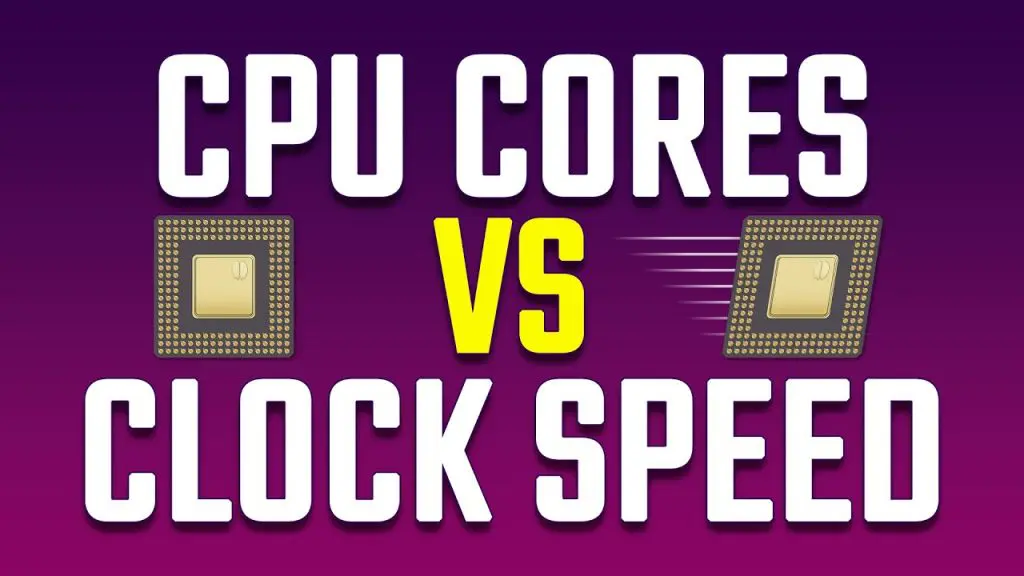Man’s needs are constantly increasing. As new technologies are introduced and the web becomes an integral part of life, we need devices that can keep up with all our demands. Yet it seems as though no matter how many advancements are made, there is always something missing- something more; something faster. Devices must satisfy every need and want instantly so as to avoid any lag or delays which would hinder productivity.
The need for computers and laptops has been met because of the speedy function they offer. The most important thing to look at when considering a computer purchase is its processor and clock speed so you can operate it efficiently.
To keep up with the ever-increasing demands of modern technology, it is important to know what processor and clock speed are. With a little information about these components, we can learn when they are important and how much GHz (gigahertz) makes for an efficient laptop.
Table of Contents
How many GHz is good for a laptop?
According to my research, 2.4GHz is sufficient for most laptops that don’t deal with heavy tasks such as video editing or gaming. For those specific needs, 3.5-4GHz would provide an increase in performance of up to 40%. But this doesn’t apply universally – when one looks deeply at what would best suit them – there are always other factors worth considering such as what type of programs they use and how often they need them (for example if someone does mostly web browsing).
One thing all laptop users agree on is that they want to do one thing at a time. But when it comes to computers, everything has some things going for them and against them. A few myths need to be busted about speed before we can come to any conclusions about which is best for you personally.
What is Processor?
A CPU is one of the most essential parts of a computer- it’s what makes everything work- without it you wouldn’t be able to do anything. Think about how many times you use your phone or laptop each day for basic tasks like checking Facebook or watching videos online? And because it handles so much information, sometimes it can take up a lot of energy too.
What does it do?
Regardless of new upgrades, the CPU still performs three important tasks: fetching instructions, decoding them, and executing them.
Fetch: There are many steps involved when it comes to executing an instruction. After a program counter (PC) records the next address for instructions, they will be transferred to an Instruction Register (IR). This is where it will wait until it’s time for the execution process.
Decode: Every circuit has its own function, but passing instructions from one place to another can’t be the only thing that it does. Every component serves its own purpose and it’s imperative for all of them to work together harmoniously in order for an object to function correctly- even if we can’t see all of them at work!
Execute: The processor has three stages. Stage one decodes the instructions, stage two transfers them to the other parts of the processor, and stage three completes them.
Is it Important?
As the heart of a computer or laptop, the CPU serves two main purposes. One function is to store information and send out alerts when necessary; another is to process input from the mouse and keyboard so that we can access programs such as Microsoft Word or Google Chrome. Without a working CPU, we would be unable to execute applications for these devices.
Processor Cores VS Clock Speed

Although the core and clock speeds have separate purposes, they both contribute to a smooth-running machine. With no definitive answer to which one should come first, it can be hard to prioritize what you need for an optimal experience. Let’s look at each of these components in detail so you can make an informed decision about what is best for your needs.
What is Processor Core?
Individual processing units within the CPU are known as Processor cores. It takes instructions from a single computing job and uses the clock speed to process and temporarily store this information in the Random Access Memory (RAM).
With the need for efficiency and cutting-edge technology, multitasking has become an important aspect of day-to-day life. It’s also one reason why modern computers now come equipped with multi-core CPUs – making it possible to take on multiple jobs at once.
2 cores: Dual-core
4 cores: Quad-core
6 cores: Hexa-core
8 cores: Octa-core
These days, listening to music or watching videos are almost considered necessary in order to complete any task at hand! Luckily for us these days, we don’t need anything special to power through work on our favorite program. All we need is the right amount of processing power and either a multicore processor or hyper-threading capability, depending on what you’re doing.
What is Clock Speed?
In layman’s terms, it refers to how quickly the Central Processing Unit (CPU) processes instructions. In other words, this is what tells laptops how quickly they are able to complete tasks without slowing down from overheating or running out of battery. Clock-speed measures in gigahertz (GHz).
A CPU with a higher clock speed executes tasks faster, so you’ll see an improvement in your computer’s work performance. It also makes switching between different apps or programs smoother – which means you’ll spend less time waiting around for things to happen!
How do they both affect your laptop’s performance?
Although there are many small differences between a laptop processor and its core, one thing remains the same: without both of them working together, your laptop just won’t work.
Suppose you have a laptop with only one core processor but a higher clock speed. Just know that because of this, your CPU will be able to perform tasks without any interruption or lag time.
If your computer has a powerful processor but only one core, then it is going to be much slower than computers with multiple cores – even if they are less powerful. More cores mean you can work on many tasks at once without your computer slowing down because each task can run independently of one another.
Essential GHz for Different Tasks
Gaming processors:
Gaming is becoming more complex every day. With newer games being released all the time, PC gaming needs a powerful processor to keep up with requirements for lifelike graphics and effects.
With the development of multiple games, it has become necessary for many to use more than one core of processing power for both graphics and audio purposes. One must have at least a quad-core processor and some need an octa-core processor with high clock speeds. With this new technology, multi-cores are being put to use in order to bring visuals, music, and gameplay together to provide an exciting hyper-realistic game experience.
There are those who think gaming is only one task – but this couldn’t be farther from the truth. Single-core processors will affect how well games perform, which means you’ll need a CPU with at least 3.5GHz to 4.0GHz of clock speed if you’re serious about playing new releases without lagging or tearing.
A single-threaded program is better but doesn’t think that the phrase optimal single thread means the same thing as a single core. An optimal single thread refers to how well your laptop does at processing each task independently when you are doing multiple things at once.
If you’re a real gamer, don’t settle for anything less than 4 cores and an overclockable processor; only then will you be able to play at optimum performance and explore the newer territory.
Everyday use processors
If you’re just doing normal computer stuff like checking Facebook or reading email, then we recommend a dual-core processor for your machine. However, if you do anything intensive like editing video or creating art – then we recommend at least a quad-core processor and ideally one that runs faster than 4GHz.
When it comes to editing work, or just doing anything that needs extra power such as graphic design, experts recommend a Hexa-core processor. So your computer can run without lag no matter what you’re trying to do at the time.
High-performance computing processors
For professionals who need to input and retrieve data constantly, an octa-core processor can handle it. For engineers, researchers, military personnel, and government officials alike – when you are in charge of making sure that information is accessible at all times – only the best will do.
Virtual Reality (VR) processors
Gaming has always been my escape from reality, but now there are new avenues to explore. With virtual reality becoming so popular these days, it only made sense for me to get a VR headset of my own. There’s nothing quite like being able to virtually explore different worlds or just see things in an entirely new way. Whether it’s hiking up mountains or walking around cities, the possibilities are limitless!
Frequently Asked Questions About Laptops GHz and Processor Speed:
Q: What’s more important, GHz or core?
The higher the number of cores, the faster it can perform multiple tasks at once. This is due to its high GHz (gigahertz) which tells you how quickly it’ll complete a task. More GHz equals less power consumption but lower performance while less clock speed on more cores equals slower speeds with the ability to do multiple tasks at once.
Q: Which is best, 1.0 GHz or 2.0 GHz?
The former might work for you if you’re still stuck on version 1.0 or 2.0 GHz, but the latter would do better because it has a faster speed than can make apps run smoothly without any problem at all. More GHz means an even smoother experience for everything you do!
Q: Whats better 2.4 GHz or 5 GHz?
Higher clock speeds mean faster processing of programs and data when you’re using multiple apps at once. At 2.4GHz, it may seem to be working efficiently enough, but at 5GHz there are no bottlenecks that could affect its performance.
Q: What is the highest GHz processor?
8.805 GHz is the top speed of a processor made by overclocking an AMD FX-8150 Bulldozer-based chip which was first released in 2011. Intel and AMDs are both going head to head for more clock speeds, but 10 Gigahertz processors still can’t be manufactured yet according to reports.
Q: What is a good processor speed for a laptop? Is higher GHz better?
Faster processing speeds are necessary for things like running apps at a faster rate and smoother than before. A higher clock speed of 3.5 GHz or more is recommended for applications such as high-end games which require a lot of processing power to run smoothly.
Q: Which processor is best for laptop 2022?
Comparing laptops 2020, I would say that if you want the best performance then go with an Intel Core i9 12900K. For those looking for an affordable option then you can go with an Intel Core i5 12600K which has great power efficiency and can also game well. For those looking for something cheaper but still wanting good performance, there is AMD Ryzen Threadripper PRO 3995WX which can game just as well as some other more expensive laptops 2020 but at a much lower price point.
Q: Can you increase GHz on your laptop?
There are only two ways you can make things go faster when you don’t have an option of increasing the frequency at which they work. Buying a new CPU or overclocking the one you already have will both work, but overclocking is cheaper and takes less time.
However, for most people who use laptops for everyday tasks, there is often no need to overclock their CPU. And this is because they may not have an unlocked CPU that would let them overclock it without risking damage. But if you’re careful and know what you’re doing when overclocking your laptop – then feel free to go ahead!
Conclusion:
People can now choose between a laptop or a desktop computer depending on what type of use it will be put towards. Laptops, which were originally just smaller desktops, have gained popularity in recent years because of the mobility they offer while still having many features like desktop computers; such as being able to multi-task and process-intensive jobs.







